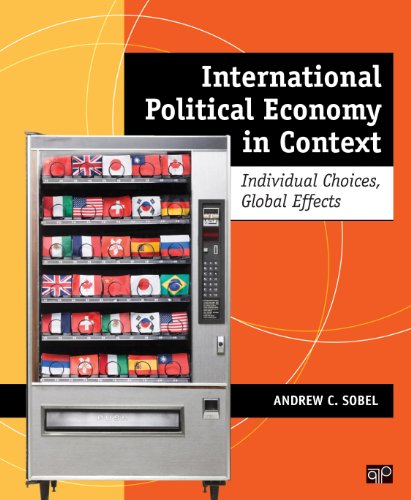International Political Economy in Context Individual Choices, Global Effects
Availability :
In Stock
₹ 8,856.00
M.R.P.:₹ 11070
You
Save: ₹2,214.00 (20.00% OFF)
(Inclusive
of all taxes)
Delivery:
₹ 0.00 Delivery charge
Author:
Andrew C Sobel
Publisher:
CQ Press
ISBN-13:
9781608717118
Publishing Year:
2012-09-01
No. of Pages:
624 pages
Weight:
490 grm
Language:
English
Book Binding:
Paperback











